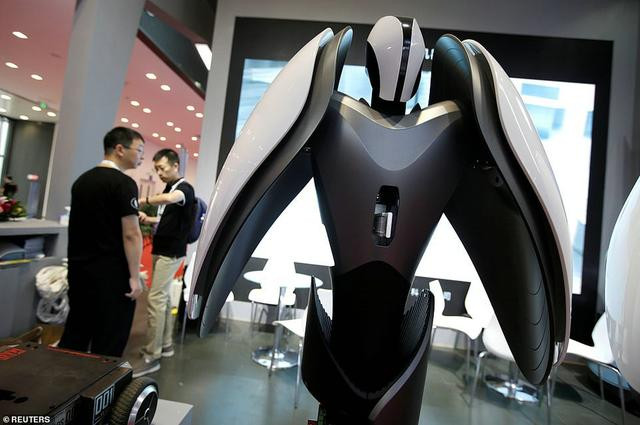China's robotics generated $4.25 billion in the first half of 2019 with a forecast of $8.68 billion by the end of the year with $5.73 billion belonging to industrial robots, $2.5 billion from service robots and $750 million from robots for special purposes.
Joe Gemma, President of the International Federation of Robotics (IFR) said that there has never been such a rise in a short period in any other market.
The average growth rate of the world's robot industry from 2014 to 2019 was 12.3 percent.
The report showed China's robotics growth rate to be at 20.9 percent during that same period.
Innovations in the Chinese robotics are on artificial intelligence, bionic structures, and human-machine collaboration.
For seven years straight, China's rapid robot market growth had given the world a large number of industrial robots.
By the end of 2019, China would be supplying a third of the world's robots.
Service robots in 2019 had a growth of 33.1 percent year-on-year, higher than the world's growth average.
In 2021, the forecast for robots for special applications like parking robots and supermarket robots are seen to reach $4 billion.
Special applications robots can also get used doing rescues during earthquakes, floods, fires, mine accidents, and public security incidents.
Giving the key elements in the world's robot development competition, academician Huai Jinpeng of the Chinese Academy of Sciences said it's made up of "innovative ability in new materials, core components, main control chips, machine learning and control algorithms."
Toshio Fukuda, the Institute of Electrical and Electronics Engineers president-elect for 2019 confirmed that China had been catching up tremendously with top technologies.
A specific example is the harmonic gears, used in aerospace and the robotics sector. This was only getting manufactured in Japan 30 years ago but are now getting made in China.
China's industrial robots used for manufacturing has not only been giving China recognition and but is also generating opportunities for partnerships with other countries.
The first robot that got exported is Bee Robot. It is equipped with simultaneous localization and mapping technology and got delivered to Japan as the first made-in-China collaborative automated mobile robot.
The Chinese company, the Shenzhen-based Yuejiang Technology Co's robots, specializing in automation for education and industry, have found their way into the German car company Volkswagen and Chinese technology giant Alibaba Group.
Report of the Chinese Robotic Industry says China is breaking through this key technology as a significant economic strategy.
Still, Huai pointed out that "Bottlenecks in basic research and key technology are still not solved."
He added that a good foundation shall be built up.






